Opinion: Are School Dress Codes Necessary?
December 7, 2021
Various types of school dress codes are excessively discriminatory and unjust. These dress codes discriminate against many genders, minorities, and gender identities. With how controversial, inequitable, and problematic school dress codes are, the question, “are school dress codes necessary?” should be considered.
There are many school dress codes that discriminate against girls and females. School dress codes in place for girls are very sexist and unjust. Many of these dress codes sexualize young girls’ bodies. They imply that showing female body parts are ‘distracting’ or ‘inappropriate’. Many people argue that these dress codes for girls are necessary as boys will be distracted by their bodies. Instead of having girls change how they dress in order to conform to others’ standards, we have to teach young boys to not sexualize girls’ bodies. Girls should not be responsible for the ways boys act. There is also a double standard presented within these dress codes, as a boy wearing the same garments would not get the same disciplinary action.
A study from New York Times says, “In an analysis of dress codes at 25 New Hampshire public schools, the researchers found that most had policies specifically targeting girls, with policies on covering breasts, cleavage, collarbones and shoulders. The study notes that some of the garments prohibited in many school policies, such as tank tops and strapless shirts, are “prohibited because they are considered ‘sexy.‘ This is very invalid because girls should not have to be defined as ‘sexy’ for the clothes they wear. Showing skin and body parts is not going to distract people from getting an education. Ultimately, school dress codes in regards to girls are unnecessary and discriminatory.
There are also many school dress codes that discriminate against black people and African Americans. Dress codes that discriminate against black people include prohibiting head coverings, like durags, bonnets, or scarfs, and hairstyles like dreads, braids, or locs. Many schools give their reasons for prohibiting these garments because they are ‘gang-related’, but associating these things with gangs is essentially anti-black and sets racist undertones. When dress codes reinforce white norms, being black becomes a violation. Controlling black bodies and the ways in which black people should portray themselves stems from white supremacy ideology.
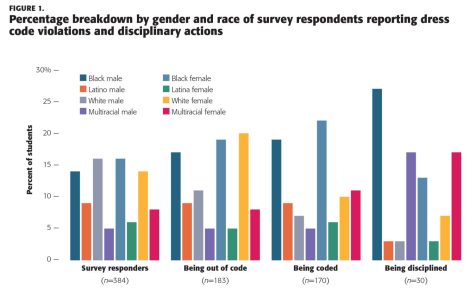
DeAndre Arnold, who attended Barbers Hill High School, has experienced this exact discrimination. DeAndre was suspended for his dreadlocks in January 2020 because they violated the dress code; he was told he cannot walk in his graduation as a result of this. Being told you can’t have an education and can’t graduate because of your hair is very unjust. Furthermore it shows how dress codes that discriminate against black people perpetuate white supremacist ideologies, are inherently racist, and oppress black people from getting an education. However, because of how widespread this incident was in the media, DeAndre has been granted many opportunities like endorsement deals with hair companies, meeting many celebrities, and interviews.
Students should be able to have a right to express themselves through their clothes and accessories without being denied an education. Dress codes strip students away from their identities and who they are as people. The clothes that students wear are one of the ways that they can show their personality and the interests that they may have. Fashion and clothes also give students pride and power in themselves, helping them build up their confidence.
According to the National Center for Education Statistics, In the 2017-18 school year, 42.6% of elementary schools, 61.6% of middle schools and 55.9% of high schools reported they enforced a strict dress code for their students.
There have been countless students who have protested against these dress codes. People are tired of being discriminated against and having their rights to wear what they want stripped away. Students at Don Antonio Lugo High School held a student-led protest combating the school’s dress code policies. The protest lasted throughout the day, happening during lunch, and after school.
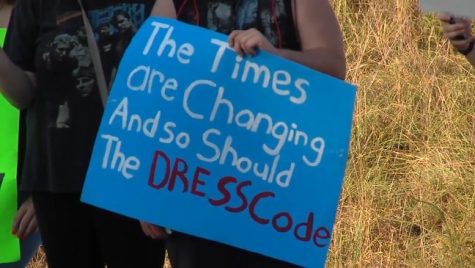
These efforts toward ending discriminatory dress code policies show how problematic and controversial they are. Students are passionate more than ever to get things changed in regards to discriminatory dress codes.
“I think school dress codes are dumb, because kids aren’t able to express their true identity,” said Sophomore Jennesse Byrd.
“I don’t think school dress codes are necessary. It contributes to rape culture [and] it pushes the idea that how you dress is how you should be perceived and treated by others.” said senior Tsion Gebretsadik, adding that a teacher has said to them, ““You’re beautiful, you do not need to be doing all that.” Gebretsadik said that, “It made me feel like I was displaying myself for the rest of the world when I was just trying to express myself,”
“I don’t think school dress codes are necessary. I feel like the teachers are more distracted by a girl showing her shoulders than the kids,” said Senior Aysia Rathpakdy.
Ultimately, Dress Codes are meant to create safe, positive learning environments in schools, but many of them have the opposite effect, discriminating and shaming students, and disproportionately targeting female students and students of color. The fight to end discriminatory dress codes continues, students will keep protesting unjust dress codes and spreading awareness about the topic.
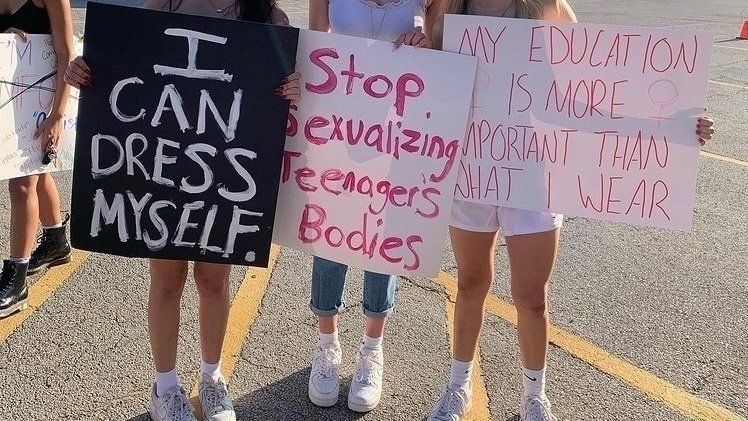

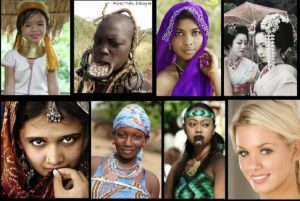



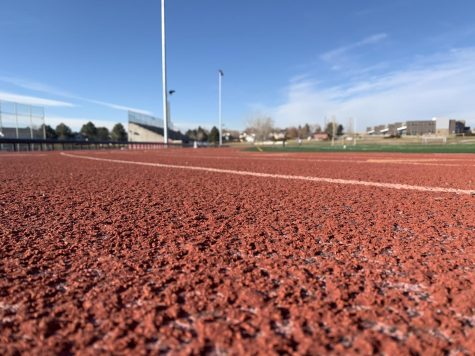
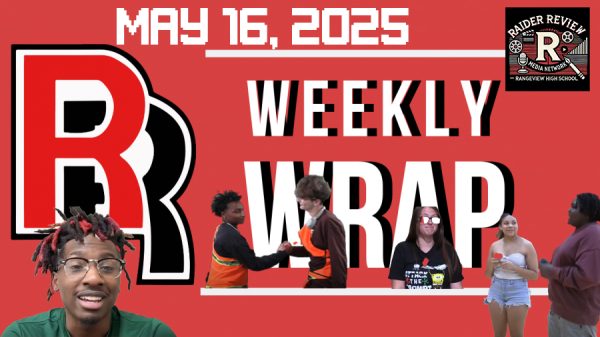
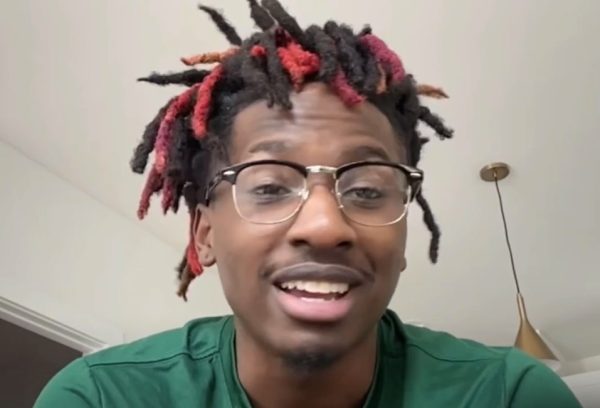
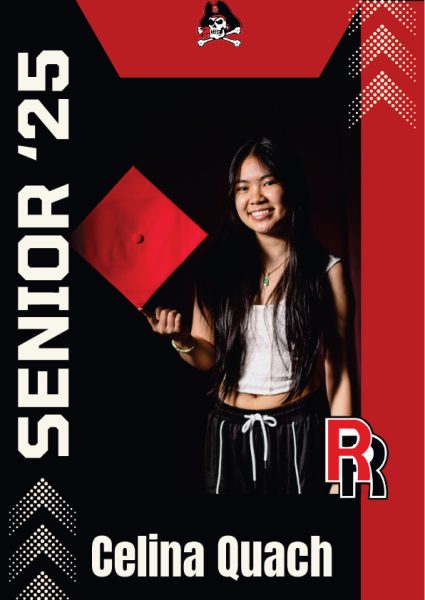
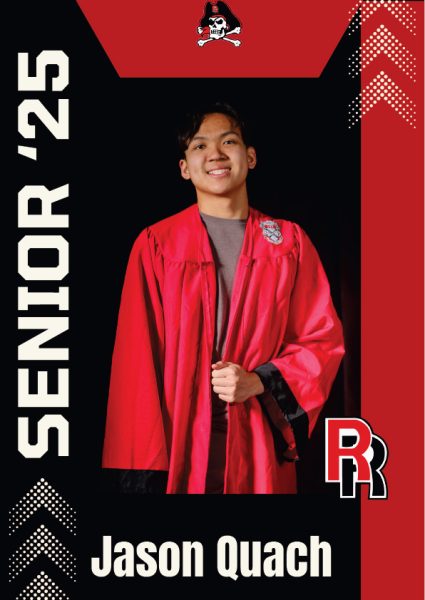

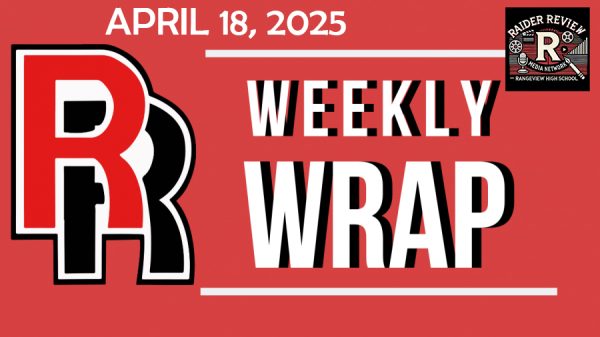
Niecey • Feb 28, 2025 at 7:55 AM
Also school codes do led to low self esteem, anxiety, eating disorders and issue in mental health
Her • Jan 26, 2023 at 1:03 PM
What about the cheer uniforms they are sexualizing girls they want boys to see them that’s what the school wants
Jenn/Mom/Teacher • Dec 9, 2021 at 6:44 PM
Modesty is important. Girls should not have to dress provocatively to express themselves or feel beautiful. It is highly inconsiderate of them to do so, especially in an educational setting where boys are biologically wired visually. Students need to learn career readiness and it starts here. One thing leads to another – why not just go to school naked – no awkardness there. So, teenagers (especially girls) please be considerate of others, be modest, express yourself in a respectful and professional way – you’ll make it and your freedoms are not being denied.
Nikya/Student • Mar 2, 2022 at 7:52 AM
First of all, girls can dress in whatever way they would like to and express themselves however they feel the need to. Second, you should take into consideration that you can’t decide how we express ourselves I get that you might find some articles of clothing inappropriate but you, as a mother, should respect your kid’s style even if you don’t like it you should let them express themselves. Girls at school do not always have to be professional its school, and our freedoms are being denied as we are forced to make sure we cover up everything to meet the standards of other people.